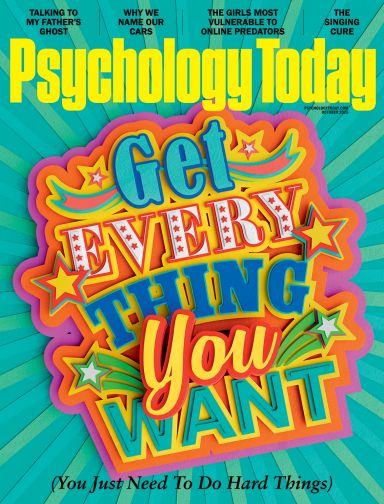
"Self-soothing advice is all over the internet, much of it in the form of warnings to avoid potentially damaging sorts like "shopping therapy" or bingeing on Ben and Jerry's, or worse, vodka martinis. Instead, experts suggest using the "good" ones, which seem to run the gamut from stimulating your vagus nerve to hugging yourself. Among the University of Miami's recommendations to faculty and staff in their current summer newsletter is "tapping.""
"Techniques like these do seem helpful for " emotional regulation," as the professionals say. But I sense that they work best for people who've had sufficient soothing as children and learned by their caregivers' examples and kind words. Maybe it's finding a distraction ("Why don't we read a book?") or reinforcing a connection ("Oh, sweetheart, let me give you a hug") or, for older children, encouraging them to share how they feel."
"In my early 20s, the only thing that would extinguish the despondency I felt over my social isolation was marijuana. As soon as I walked into my apartment after my commute home from work, I'd have a hit off the half-smoked joint in my ashtray. It was the only way I could face another solitary evening, and I had a lot of them because I was pretty socially awkward."
Internet self-soothing advice contrasts 'good' techniques (vagus-nerve stimulation, hugging, tapping, bouncing) with harmful coping (shopping therapy, binge eating, alcohol). Such techniques can aid emotional regulation but often rely on skills learned through early caregiving and sufficient childhood soothing. Children who receive comforting responses tend to develop into more independent adults who use adaptive strategies, while people lacking early tender guidance are likelier to adopt damaging self-soothing like substance use. Personal experience includes using marijuana in early adulthood to numb social isolation and anxiety, illustrating how absence of early soothing can lead to reliance on harmful coping.
Read at Psychology Today
Unable to calculate read time
Collection
[
|
...
]